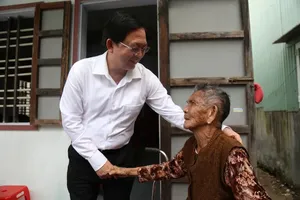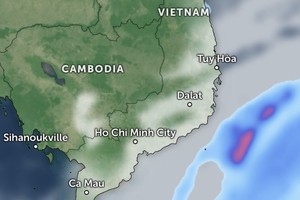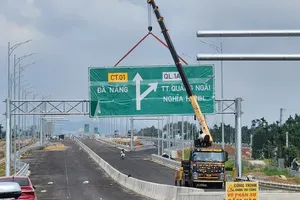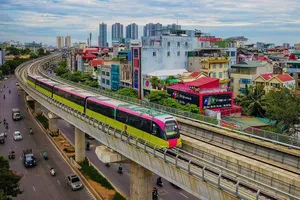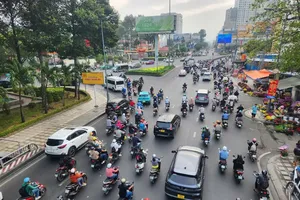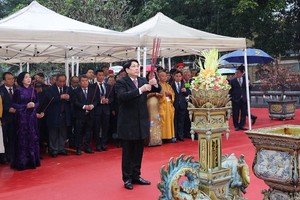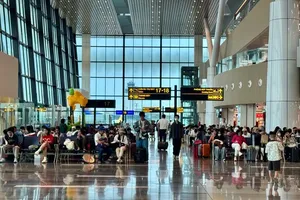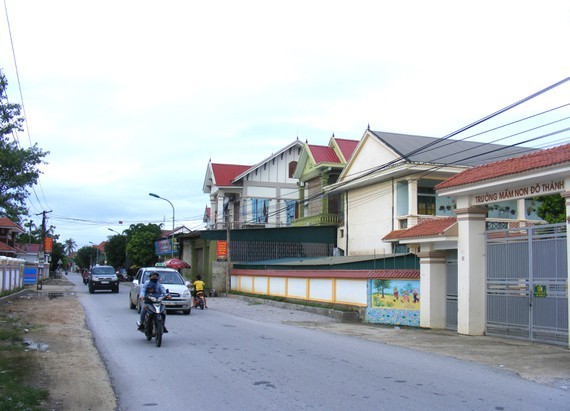
There are reportedly 3,500 legal workers entering Korea, Taiwan or Japan each year from Quang Binh Province, but a large unknown number of irregular travelers to the UK, Australia and France.
People are constantly warned against seeking jobs abroad illegally due to the risks by the Department of Labor, Invalids and Social Affairs, said Deputy Director Pham Thanh Dong.
According to Mr. Dang Anh Tuan, Chairman of Thien Loc Commune People's Committee (Can Loc District, Ha Tinh Province), the local government coordinated with the Center for Employment and Labor Promotion and the District Department of Labor, War Invalids and Social Affairs to guide the people in the area the table to go to labor export in the legal way.
Ha Tinh Province’s authorities is working with the local Center for Employment Promotion and Department of Labor, Invalids and Social Affairs to encourage citizens to seek overseas careers via legal gateways, said Chairman of Thien Loc Commune People’s Committee Dang Anh Tuan.
Thanks to these efforts, people are receiving proper career orientation and becoming more aware of the risks behind irregular immigration, said Tuan.
The same approach is being utilized by other communes within Ha Tinh Province and is bringing positive results, despite a number of management loopholes.
Owner of a legal European immigration consulting company expressed his concerns over the abundance of illegal smuggling rings, saying that they cause uncertainty and danger.
Do Thanh Commune in Nghe An Province has been relying on labor exports as its main source of revenue, earning the commune VND147 billion (about US$6 million) between January and October of 2019 with about 2,471 workers abroad, said its Chairman of People’s Committee Nguyen Van Ha.
The International Labor Organization (ILO) estimates there are currently 164 million migrant workers, an increase of 9% since 2013, when this figure was 150 million. According to the second ILO issued report on global estimates of migrant workers during 2013-2017, 96 million migrant workers were male and 68 million were female. Of the 164 million migrant workers worldwide, approximately 111.2 million people (67.9%) live in high-income countries, 30.5 million (18.6%) in middle income countries, 16.6 million people (10.1%) in lower middle-income countries and 5.6 million (3.4%) in low-income countries.
According to official reports from the Ministry of Labor, War Invalids and Social Affairs, during 2007-2017, there are more than 1 million Vietnamese workers abroad, about one third of them are women. Vietnamese migrant workers mainly work in construction, manufacturing, domestic work, health care, agriculture and fisheries. Among these occupations, domestic work and fisheries are considered the riskiest, as their working environments are isolated and often lacks legal protections.
In an article published on September 29, Ambassador of the United Kingdom of Great Britain and Northern Ireland in Vietnam Gareth Ward wrote that human trafficking and illegal migration is a roadblock in the Vietnam-Britain partnership. This phenomenon is called “Modern Slavery” in the UK, because many victims are forced to work in extremely horrendous conditions, and abused physically and sexually. Many of them come from poor provinces like Nghe An, Ha Tinh and Quang Binh.
